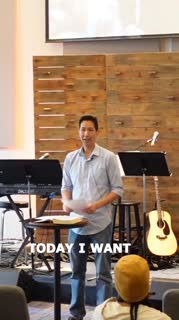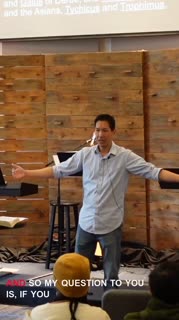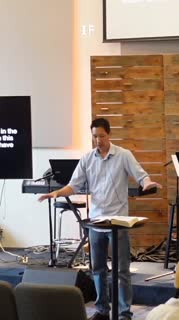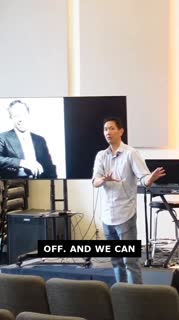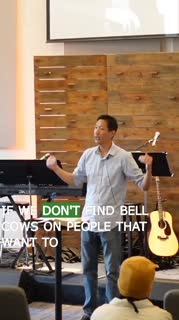Empowering Leadership: Lessons from Paul's Journey
Devotional
Sermon Summary
Bible Study Guide
Sermon Clips
1) "Today I want you to think about finding the bell cows and what it would mean for this church, what it would mean for you, what it would mean for us to rethink the way we look at church and how church and strategy work together." [03:58] (14 seconds)
2) "And so my question to you is, if you want to do church ministry, is your church philosophy right now looking more like the first strategy, first trip strategy, where you're just doing stuff and you're not worried about working with people? You're just busy and doing work, and then you move on to the next town." [19:54] (20 seconds)
3) "If you don't understand that, you're missing how church is supposed to operate at its finest. I want you to think about, again, if you look at first strategy versus fourth strategy, most of us, most of us want to do the work. Most of us want to get engaged and do things. And Paul had a whole different philosophy, which was by the time that he hit his fifties, he matured enough to say, it can't just be about me." [25:32] (33 seconds)
4) "And we can be the kind of church that either is going to bottleneck everything up at the top leader, like the first -trip ministry, or we can be the kind of church that raises leaders and says, you do it, you do it, you do it, and have this expectation that people are going to lead." [30:21] (18 seconds)
5) "If we don't find bell cows on people that want to step up and do things and lead, we, this church is only going to go so far. And if you think, well, this is Keith's job, it's Ivan's job, it's one of the elders' job, we're going to get capped off really quickly." [31:05] (21 seconds)
Ask a question about this sermon
2) "And so my question to you is, if you want to do church ministry, is your church philosophy right now looking more like the first strategy, first trip strategy, where you're just doing stuff and you're not worried about working with people? You're just busy and doing work, and then you move on to the next town." [19:54] (20 seconds)
3) "If you don't understand that, you're missing how church is supposed to operate at its finest. I want you to think about, again, if you look at first strategy versus fourth strategy, most of us, most of us want to do the work. Most of us want to get engaged and do things. And Paul had a whole different philosophy, which was by the time that he hit his fifties, he matured enough to say, it can't just be about me." [25:32] (33 seconds)
4) "And we can be the kind of church that either is going to bottleneck everything up at the top leader, like the first -trip ministry, or we can be the kind of church that raises leaders and says, you do it, you do it, you do it, and have this expectation that people are going to lead." [30:21] (18 seconds)
5) "If we don't find bell cows on people that want to step up and do things and lead, we, this church is only going to go so far. And if you think, well, this is Keith's job, it's Ivan's job, it's one of the elders' job, we're going to get capped off really quickly." [31:05] (21 seconds)
